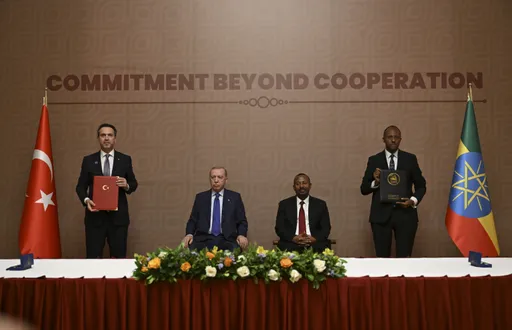If there is one point which history writers will dwell on when writing about the war between the West and Russia, it is that America and its staunch allies like the UK were deluded right from the off. Joe Biden and Boris Johnson believed firmly that the Ukrainian army could defeat the Russians with their support, and it would be a short war. They also placed way too much gravitas on the West’s influence around the world, clinging to the old idea that former colonial outposts in Africa would toe the line on London and Washington’s sanctions and its so-called hegemony.
Delusional might be the word which will be used by historians.
And it’s this delusional thinking which is not only plunging the West’s own countries into economic gloom not seen since the post-war years, in the UK, for example, of food rationing and spiraling prices – but is also creating a new world order and a new ‘reset’.
It starts with sanctions. Although history has taught us that sanctions seldom work, the jury is out whether the more powerful secondary sanctions can do a better job. These are sanctions imposed on your own allies to not trade with your enemy. In the case of the West, recent threats by the Biden administration against African countries who are considering buying oil from Russia largely went unnoticed by mainstream media, beyond the highbrow broadsheets such as the New York Times. But the consequences of the Biden administration going ahead with its threat could be a colossal mistake in history which would be the final nail in the coffin of US hegemony as we know it.
Just recently, brokered by Türkiye, Russia agreed to let grain ships leave the port of Odessa easing a crisis that was reaching a fever point for many African and Middle East countries which were facing a food crisis. The consequences of an African or Middle Eastern country not being able to make and sell subsidised bread is not to be underestimated. Revolutions have started for less. Extreme poverty brings with it growth in terror groups and spiked numbers of those fleeing and joining the migrant caravan heading for Europe.
To his credit, Putin stepped up to the mark and wasted no time in signing the deal, as he was lobbied himself by many countries urging him to act. It’s what superpowers do. They think of the big picture. Europe has a lot to thank him and President Erdogan for in fact, given the implications of a food crisis in this region due to wheat shortages.
But there is no gratitude or goodwill, which could have been the basis of such talks moving to the next level. Moreover, what we saw was Linda Thomas-Greenfield, the U.S. ambassador to the United Nations, while in Accra, Ghana delivering a pretty lucid threat to any African countries considering buying Russian oil.
Presently grain from Russia, along with agricultural equipment, is allowed to be bought by African countries, but Russia is irritated by the threat issued and worries that some African countries might even switch sides to Ukraine when ordering wheat – interpreting the threat over oil to be a veiled threat for other commodities. We prefer it if you buy Ukrainian wheat and no Russian oil; seems to be the opaque warning.
There might be a grain of truth in this. The seven Russian ports in the Black Sea have yet to feature in any media reports as it would appear they have not loaded ships with Russian grain to date.
America has overplayed its hand, though. It is unclear how many African countries will comply with these latest orders, which have a whiff of colonial paternalism. Some countries, according to the New York Times, will simply have no choice and may well have to buy Russian oil.
But the real consequences will not be felt by them but by the West. Yet again, the miscalculation by Biden, which is a theme that keeps on repeating itself like a stuck record, will be the blowback on the West itself.
African countries could probably figure out ways to get around these sanctions. Indeed, it is rarely reported that the secondary sanctions imposed against China, India, and a few others to not buy Iranian oil by the Trump administration have failed to be upheld by Biden. So, enforcing them might be tricky.
But if the Biden administration is as maladroit as it is inept on the foreign policy circuit, then there is every reason to believe they will clash with those who buy the oil. This is yet again another misjudgment that will blow up in the West’s face, given that some of these countries do have a few aces to play themselves.
Precious metals and minerals, essential for some mobile phones like iPhones manufactured by western companies, may well find themselves being blocked by those African governments who want to stand up to Washington’s delusional, if not outdated, bullying. Cobalt, used in the production of lithium-ion batteries, could also find itself in the middle of a sanctions clash as if the countries which extract it are sanctioned, then their governments will no doubt sell only to the East and will be well rewarded for such a deft geopolitical move.
The much bigger threat, though, by Biden’s latest gaffe is in the longer term. Twenty African countries at a key UN vote refused to condemn Russia’s incursion on Ukraine in February, and these leaders will be planning on staying ‘non-aligned’ in a new cold war that is unraveling due to the West’s erroneous policies to demonise Putin. These countries want to stay out of the fight they say is not theirs. They want to keep their trading options open to both camps in the future when China, Russia, and India forge even stronger trade and geo-military ties and the East starts to dominate. We are at the tipping point now, but Biden fails to see it.
These new threats of US sanctions could drive some of these countries out of their ‘non-aligned’ comfort zone and push them towards the new world order being carved out by the East. China is already the biggest investor in Africa, so it would hardly be a great leap of faith. In recent days we have seen French troops pull out of Mali to be replaced by Russian mercenaries and new aircraft donated by Putin.
New members in the Middle East can see the writing on the wall already and are applying to join BRICS. Perhaps Biden’s latest move might push African leaders towards the same camp.























